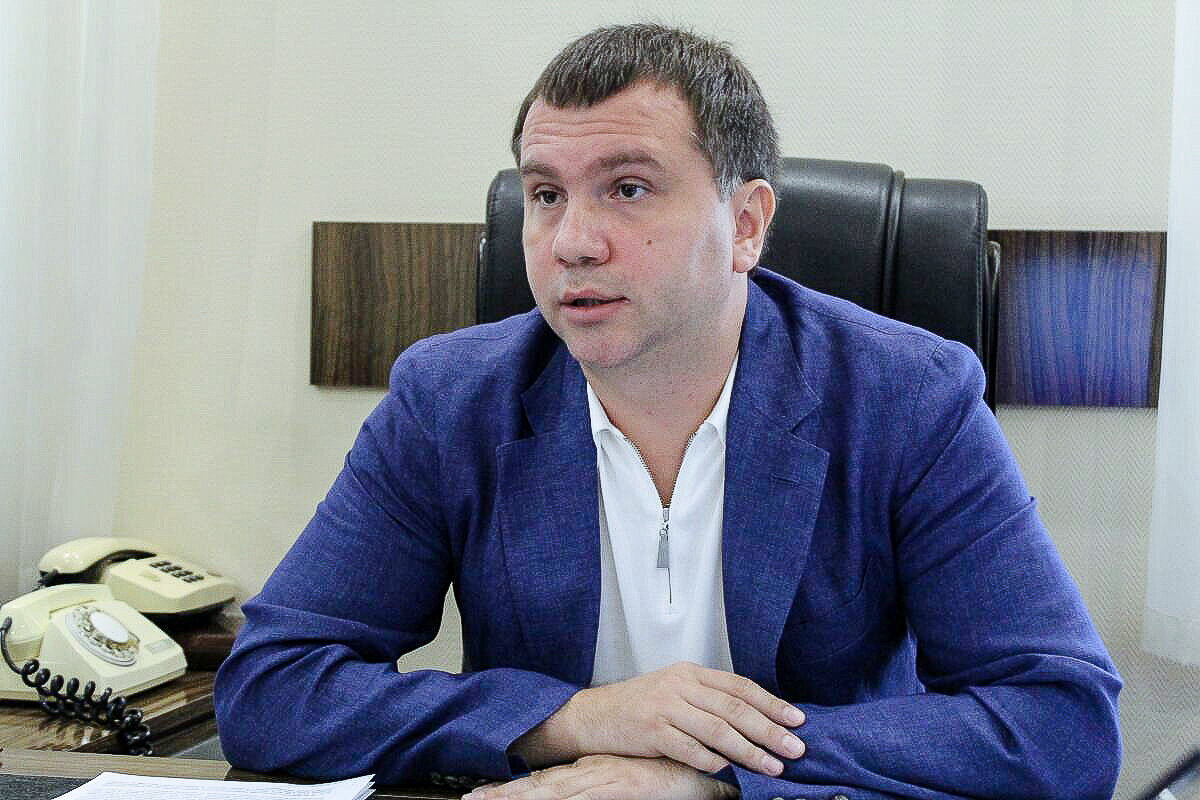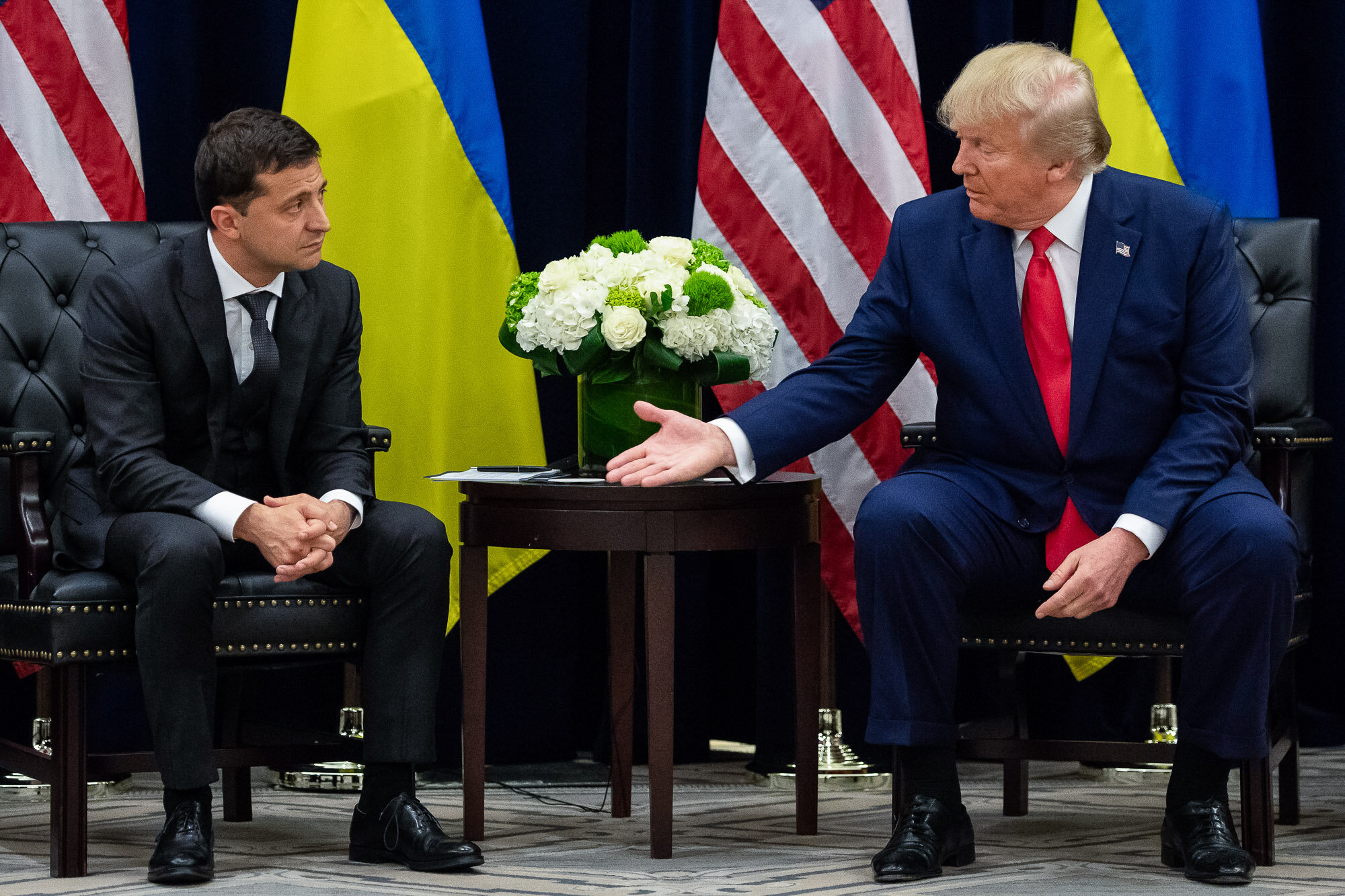There’s no such thing as a private conversation or message in Ukraine.
Oligarchs, ambassadors, anti-corruption officials, and even presidents — they all have seen their private conversations leak online. Some of these recordings shed light on previously hidden political arrangements, some just made people laugh, while others uncovered major corruption schemes undermining the country’s integrity.
The Kyiv Post gathered Ukraine’s 10 biggest political scandals that sparked after private conversations — not meant to be heard at all — were leaked to the public.
Vovk tapes
The most recent political scandal involving high-rank officials being tapped had everything one needs for a good crime drama. The only problem — it happened in real life.
On July 17, the Prosecutor General’s Office and the National Anti-Corruption Bureau of Ukraine (NABU) published audio recordings implicating controversial judge Pavlo Vovk, head of the Kyiv Administrative District Court, and other judges of his court in alleged crimes.
In the 45-minute audio recording published by NABU, voices alleged to belong to Vovk and other judges discuss a variety of criminal activities: organized crime, abuse of power, bribes and unlawful interference in the work of the High Qualification Commission of Judges, a state body that selects and vets judges.

Pavlo Vovk, head of the Kyiv District Administrative Court, was charged with organized crime, usurpation of power, bribery and unlawful interference with government officials on July 17. (oask.gov.ua)
Since the tapes were published, Vovk and five other judges from his court have been accused of arranging fake lawsuits to suspend the mandates of members of the High Qualification Commission. Vovk has also been accused of organizing phony hiring competitions to flood the commission with members loyal to him.
Vovk and other judges of his court deny all accusations.
Melnychenko tapes
Hundreds of hours of audio recordings made by Mykola Melnychenko, ex-major of the State Security Service, were published in November 2000, causing what’s become the biggest political scandal since Ukraine’s independence.
The published recordings have shed light on then-President Leonid Kuchma’s authoritarian governance. On the tapes, Kuchma allegedly ordered Donetsk Oblast Governor Viktor Yanukovych to pressure a judge and asked Tax Service Head Mykola Azarov for help in falsifying an election. On the tapes, Kuchma is heard running the nation like a mafia boss – deciding who gets favors and who gets punished.
The published recordings have also linked Kuchma to the Sept. 16, 2000 murder of famous Georgian-Ukrainian journalist Georgy Gongadze. The revelations led to street protests and major political turmoil inside Ukraine.
After Gongadze was murdered and decapitated, Oleksandr Moroz, leader of the opposition Socialist Party, published wiretap recordings made by Melnychenko, who also was the former presidential security guard, allegedly made in Kuchma’s office.
The tapes featured a man with a voice similar to that of Kuchma ordering his allies to deal with his prominent critic, Gongadze. One of the men receiving the orders was then-Interior Minister Yuriy Kravchenko.
Although the tapes feature no direct order to kill Gongadze, they cast a shadow on the president’s office and made Kuchma a key suspect in the case.
Before long, protesters took to the streets of Kyiv, demanding the president to resign. The protests didn’t succeed, but they substantially weakened the president and indirectly led to the 2004 Orange Revolution, which through court proved that Kuchma’s protégé Viktor Yanukovych rigged the presidential election.
Nonetheless, Gongadze’s murder remains unsolved to this day.
In 2013, Oleksiy Pukach, former police general, was sentenced to life imprisonment for kidnapping, torturing, and killing Gongadze. A few years prior, his three accomplices received prison sentences too.
However, the organizer of the murder remains unknown. The man receiving orders on the tapes, Kravchenko, was killed by two gunshot wounds to the head in 2005, while Kuchma was acquitted in 2011.
In 2010, Yanukovych was elected president, while Azarov became the prime minister.
Trumpgate
Leaked phone conversations have also led to a huge international political scandal involving Ukraine — the impeachment of U.S. President Donald Trump.
On July 25, 2019, Trump called Ukrainian President Volodymyr Zelensky, a few days after his party won a landslide victory in the parliamentary election. During the call, Trump asked Zelensky for “a favor”: to talk to his personal attorney Rudy Giuliani and to investigate the family of former Vice President Joe Biden, Trump’s main rival in the upcoming November 2020 presidential election.
The content of that conversation was made public after a whistleblower complaint alleged that Trump used his office to pressure Zelensky for personal gain.

U.S. President Donald Trump off ers a handshake to Ukrainian President Volodymyr Zelensky during a meeting in New York on the sidelines of the United Nations General Assembly on Sept. 25, 2019. (AFP)
Trump had ordered $391.5 million in military aid frozen shortly before his call with Zelensky, in an attempt to blackmail the Ukrainian president.
Soon, an impeachment inquiry was launched by Trump’s rival Democratic Party. On Dec. 18, 2019, Trump was impeached by the House of Representatives, only to be later acquitted by the Republican-led Senate.
Derkach’s pro-Russian agenda
Since 2019, independent lawmaker Andrii Derkach has been one of several Ukrainians who have pushed conspiracy narratives about former Vice President Joe Biden, who is challenging incumbent President Donald Trump in the upcoming election in November 2020.
Derkach has actively promoted unsubstantiated and often debunked conspiracy theories alleging that, while serving as vice president, Biden influenced Ukraine’s domestic policy for personal gain.
Starting in May, Derkach began publishing audio recordings of what appears to be conversations of ex-President Petro Poroshenko and Biden. The two discussed the firing of Prosecutor General Viktor Shokin.
However, the tapes failed to provide any new information and add anything to existing information that Biden was echoing a common consensus among Ukrainian civic watchdogs, pro-reform lawmakers and the country’s partners in the European Union, who alleged that Shokin was stalling investigations into key corruption cases.
On Aug. 7, the United States Intelligence accused Derkach of acting in the interests of Russia and attempting to interfere in the 2020 U.S. presidential election.
American interference
The scandal involving Trump and Zelensky wasn’t the first one involving top American and Ukrainian officials.
In 2014, the conversation between Victoria Nuland, assistant secretary of State for European and Eurasian Affairs, and former U.S. Ambassador to Ukraine Geoffrey Pyatt caused a scandal abroad.
The published tapes showed that American diplomacy isn’t that secured and that U.S. diplomats have a tendency to gossip similar to their Ukrainian counterparts.
On Feb. 4, amidst the then ongoing EuroMaidan Revolution, which eventually led to the ousting of pro-Russian Ukrainian President Viktor Yanukovych, two high-rank American diplomats discussed who should lead the government after Yanukovych’s ouster.
Nuland suggested that it should be Arseniy Yatsenyuk, because of his economic background. The two also agreed that they need to help Yatsenyuk with “personality management” among the three leaders of the opposition.
Yatsenyuk became prime minister of Ukraine in February 2014.
Nuland and Paytt also discussed the role of the European Union slow-pace approach towards dealing with the then-ongoing political crisis in Ukraine, sharing unkind remarks.
In one instance, Nuland also said “fuck the EU.”
The State Department later apologized to the European Union, however, didn’t press for an internal investigation. Both diplomats kept their jobs.
Former Secretary of State Hillary Clinton, wrote in 2017 that the incident “didn’t have lasting diplomatic repercussions.”
Kholodnytsky’s fish tank
Serious corruption allegations are often left without a proper investigation in Ukraine.
Among them, there is a series of allegations made against Special Anti-Corruption Prosecutor Nazar Kholodnytsky, which were made after leaked audiotapes showed the prosecutor tipping off suspects in criminal investigations.
During an investigation that began in 2017, the Prosecutor General’s Office and NABU bugged an aquarium in Kholodnytsky’s office and recorded his conversations. The recordings appeared to show Kholodnytsky blocking or subverting corruption cases against Interior Minister Arsen Avakov’s son Oleksandr, Vishneve Mayor Ilya Dikov, Lieutenant General Pavlo Tkachuk, former State Aviation Service Chief Denys Antonyuk, executives of tycoon Dmytro Firtash’s Zaporizhia Titanium and Magnesium Plant, and People’s Front party lawmaker Georgy Logvynsky.
Kholodnytsky denied any wrongdoing.
On Jan. 29, the Security Service of Ukraine closed a criminal case against Kholodnytsky, saying it concluded that he had not commit any crime.
On Aug. 21, Kholodnytsky announced his resignation on Facebook by posting an employment termination order signed by the prosecutor general. He resigned three months prior to his contract’s expiration date.
Tapped Investigation Bureau
The reputation of yet another high-profile state agency was tarnished after leaked tapes suggested that head of the State Investigation Bureau Roman Truba had been engaged in unlawful prosecutions.
In the audio recordings published in November, a person alleged to be Truba receives instructions from the presidential office and the Prosecutor General’s Office on how and whom to prosecute.
In the recordings, the man alleged to be Truba talks to a man alleged to be Andriy Bohdan, ex-chief of staff, discussing investigations against ex-President Petro Poroshenko and the timing of interrogations for Poroshenko.
“Andriy Iosipovich, I promise, I’ll do everything,” the person alleged to be Truba says. Iosipovich is Bohdan’s patronymic.
Truba was fired on Dec. 27, 2019.
Toppling Honcharuk
Leaked audiotapes aren’t always used to uncover corruption. Sometimes they are published to cause a rift between political allies.
On Jan. 15, audiotapes published online featured ex-Prime Minister Oleksiy Honcharuk saying that President Zelensky “had a very primitive understanding of the economy.” The comments were made during a meeting with several ministers and officials from the National Bank of Ukraine.
Zelensky demanded on Jan. 17 that law enforcers investigate the leak within two weeks.
On Feb. 5, the Security Service of Ukraine searched the premises of television channel 1+1 owned by oligarch Ihor Kolomoisky as part of that investigation. However, no charges were pressed.
Soon, the relations between Zelensky and Honcharuk deteriorated, causing the parliament to dismiss Honcharuk on March 4, after the prime minister submitted a formal letter of resignation.
Onyshchenko tapes
Former lawmaker Oleksandr Onyshchenko fled Ukraine before he was stripped of his parliamentary immunity amid corruption accusations. According to the prosecution, he stole $125 million from state-owned gas producer UkrGazVydobuvannya.
Then Onyshchenko decided to fire back.
Starting in December 2016, Onyshchenko released a series of audio recordings that, he claims, prove that ex-President Petro Poroshenko and his inner circle were corrupt.
Onyshchenko accused Poroshenko of bribing members of parliament to vote in certain ways, embezzlement, orchestration of a smear campaigns against political enemies and more.
In 2018, the Slidstvo.info investigative journalist project published about 350 alleged WhatsApp messages between Onyshchenko and Poroshenko which support the fugitive lawmaker’s claims.
Poroshenko denied all accusations, so did his political allies who were also mentioned in the tapes.
Onyshchenko had been living in Europe since 2016, before being arrested at the end of November on Ukraine’s request. Onyshchenko is currently fighting off the extradition request in Germany.
Tymoshenko’s birthday wishes
Oligarch Ihor Kolomoisky is not new to scandals. Recordings featuring the oligarch have regularly appeared on the internet.
Kolomoisky fell victim to Russian pranksters back in 2014, while multiple of his private conversations appeared online casting a shadow on those whom he talked to.
The most recent political scandal took place right before the 2019 presidential election when the conversation between Kolomoisky and opposition leader Yulia Tymoshenko was leaked by a close ally of then-President Petro Poroshenko. Poroshenko was seeking re-election and Tymoshenko was one of his main rivals.
In the conversation, Tymoshenko allegedly congratulated Kolomoisky on his birthday and thanked him for their friendship and partnership.
The Petro Poroshenko Bloc party demanded to investigate the financial relations between the notorious oligarch and Tymoshenko, former prime minister. However, no legal actions were taken.
Tymoshenko came third in the 2019 presidential election, while her party came in forth in the following parliamentary elections, securing 24 seats in parliament.
